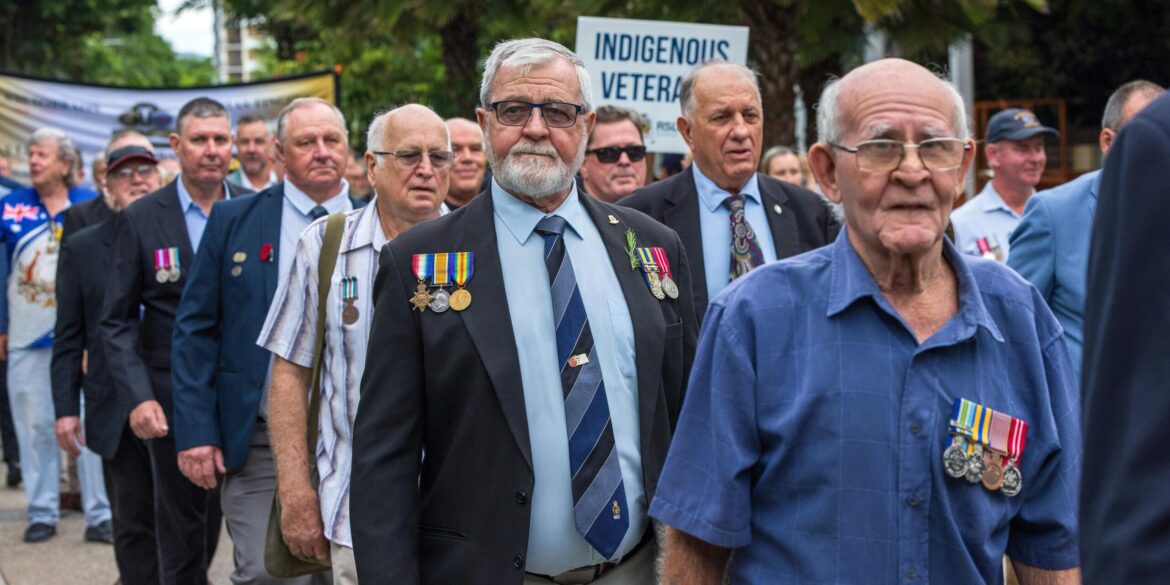On June 6, 2025, veterans from across the United States gathered to protest proposed cuts to the Department of Veterans Affairs (VA) under the Trump administration. Marking the anniversary of D-Day, a pivotal moment in World War II history, these demonstrations took place in Washington, D.C., 16 state capitals, and more than 100 other cities across 43 states. The protests were organized to demand increased funding and better services for military personnel, their families, and veterans.
The protests reflected growing frustration with the proposed budget cuts, which many veterans and their supporters argue would directly impact vital programs and services such as healthcare, housing, and education benefits. These cuts have raised concerns about the ability of the VA to adequately care for the men and women who have served in the armed forces.
Veterans and their advocates have long pushed for comprehensive and reliable support systems to meet the needs of former service members, particularly when it comes to their physical and mental health. For many, these protests symbolized a broader fight to ensure that those who have served in combat receive the care they deserve, not just as a matter of political obligation, but as a national priority.
Rising Concerns Over VA Healthcare
One of the primary issues highlighted during these nationwide protests was the adequacy of healthcare services provided by the VA. Veterans who have served in wars such as Iraq and Afghanistan, as well as those who served in earlier conflicts, often face serious health challenges that require long-term care and treatment. The VA has historically struggled with backlogs and delays in care, which have been compounded by administrative issues within the department.
The proposed cuts to the VA budget threaten to exacerbate these existing problems, making it even harder for veterans to access timely and effective healthcare. In many parts of the country, especially in rural areas, veterans rely on the VA for their healthcare needs. Protests emphasized the need for comprehensive reform to ensure that the VA can meet the increasing demands of an aging veteran population while also providing services for younger veterans who may need care related to post-traumatic stress disorder (PTSD) and other mental health conditions.
Housing and Education Benefits Under Threat
In addition to healthcare, veterans are concerned about cuts to housing and educational benefits, which are critical in helping them transition to civilian life. Many veterans face difficulties in securing stable housing after their service, and affordable housing options for veterans have become increasingly scarce in many parts of the U.S. Veterans often rely on VA-backed loans to help them buy homes, and cuts to these programs would limit their access to such opportunities.
The protestors also called attention to the potential reduction of educational benefits offered under the GI Bill. This program has been a cornerstone of veterans’ post-service reintegration, enabling them to pursue higher education and training. A reduction in funding for these programs would leave many veterans struggling to achieve their educational goals and transition to civilian careers successfully.
A Broad Coalition of Support
The protests were not only organized by veterans themselves but also garnered widespread support from civilian groups, advocacy organizations, and lawmakers. Many saw the cuts as an attack on the very people who have sacrificed so much for the country. These demonstrations represented a growing coalition of voices advocating for the protection of veterans’ rights and a commitment to supporting them after their service.
Prominent national organizations such as the American Legion and Disabled American Veterans (DAV) were actively involved in organizing and promoting the protests. These organizations are among the leading voices in advocating for veterans’ rights and continue to play a significant role in raising awareness about the challenges veterans face, especially when it comes to accessing care and benefits.
Political Implications and Moving Forward
The timing of the protests, on the anniversary of D-Day, was significant in reminding the public of the sacrifices made by generations of veterans. For many, the protests were a poignant call to action, urging lawmakers and the administration to take immediate steps to address the needs of veterans rather than undermine the services that support them.
As the protests continued across the country, participants expressed a sense of urgency, urging the government to prioritize the wellbeing of veterans. The protests have already sparked conversations in Congress, with several lawmakers expressing concerns about the potential consequences of the proposed cuts. While the future of these budget proposals remains uncertain, the demonstrations highlighted the unwavering commitment of veterans to stand up for their rights and the importance of maintaining strong, effective support systems for those who have served the nation.
In conclusion, the nationwide protests held on D-Day’s 81st anniversary marked a powerful moment in the ongoing fight for better care and services for veterans. With growing concerns about the future of the VA under the current administration, these demonstrations will likely continue to shape the national conversation surrounding veterans’ rights and the need for increased government support.

